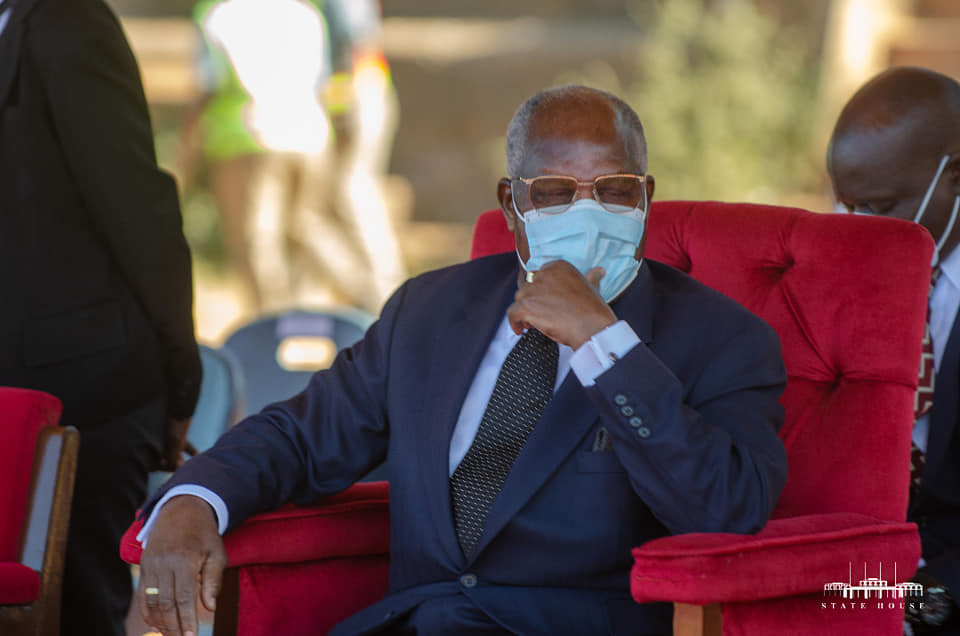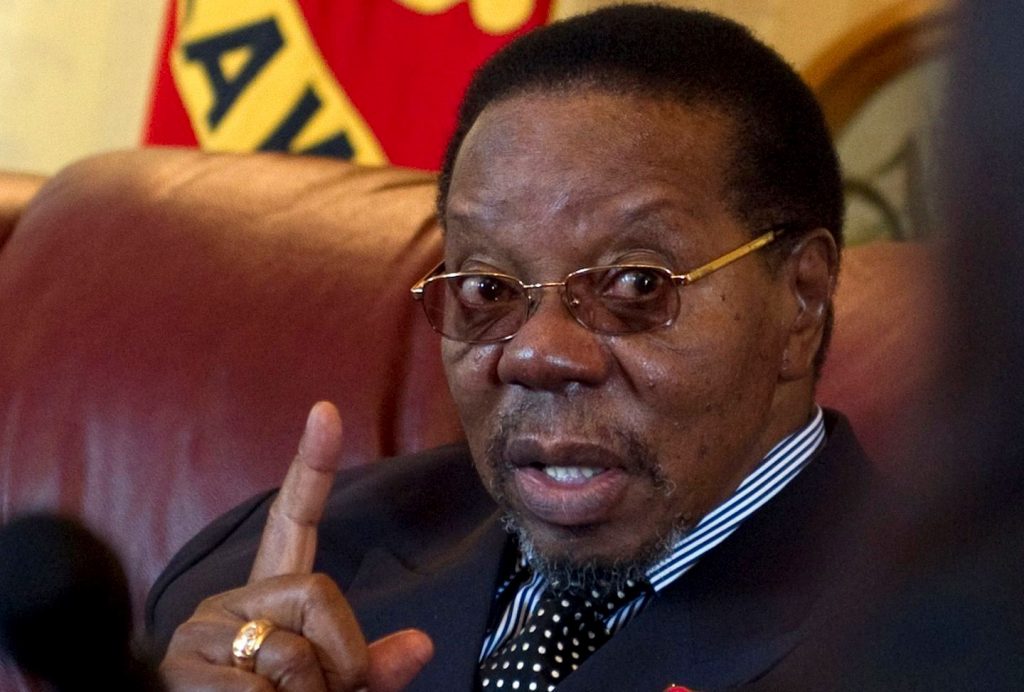Malawi’s public debt now at K5.8 tn
Sixteen years ago, the Democratic Progressive Party (DPP) under Bingu wa Mutharika was the toast of town for securing Malawi’s debt relief package, which helped to reduce the country’s total public debt by nearly 70 percent.
The debt forgiveness—achieved under the Highly Indebted Poor Countries’ (Hipc) initiative in 2006—cut total public debt (TPD) from K426 billion in 2005 or 130 percent of gross domestic product (GDP) to K131 billion or 30 percent of output.

The debt cancellation heralded an era of high economic growth rates for Malawi averaging seven percent between 2006 and 2011 with a peak of 9.7 percent in 2008.
The high growth rates were largely powered by savings from the forgiven debts and buoyed by high agricultural output on the back of inputs subsidies.
Apart from strong economic growth rates and improved food security, the Mutharika administration was also able to sustain moderate consumer prices over the period.
Here is the irony: Today, the party that dug Malawians out of the public debt dungeon that Bakili Muluzi’s United Democratic Front (UDF) dumped them in shoulders the heaviest responsibility for throwing local citizens back into the treacherous debt hole.
The debt accumulation is partly responsible for most of the suffering that the country is going through today as money that should support crucial imports and deliver better services to the people goes to service the huge debt stock externally and locally.
An African Network on Debt and Development (Afrodad) presentation in 2019: The Nexus Between Debt, Poverty and Inequality: Drawing Lessons from Africa and beyond observed that huge public borrowing costs are aggravating poverty.
“The servicing of heavy debt may directly divert budgetary resources from investments necessary to stimulate economic growth. High indebtedness may lead to capital flight, finally a country with high indebtedness is often perceived by international financial markets and donors as exhibiting problems of economic mismanagement and bad governance, and, therefore, too risky for investment,” reads the Afrodad presentation.

For example, in the 2022/23 National Budget, interest payments alone on the nearly K6 trillion of public debt stock, most of which was accumulated under DPP regimes, stand at K524 billion and represent 4.6 percent of GDP or around 18 percent of total expenditure.
That is not to say the Tonse Alliance administration has been fiscally responsible.
Within six months of the Lazarus Chakwera administration, TPD stock amounted to K4.76 trillion or 54 percent of rebased GDP by December 2020 from K4.13 trillion or 47 percent of rebased GDP recorded in June 2020 when the new government took over.
This translates into an increase of 15 percent or seven percentage points of GDP between the two periods, according to the Ministry of Finance.
By December 2021, TPD rose to K5.8 trillion or roughly 56 percent of GDP, according to the 2022/23 Budget documents on the back of the Covid-19 pandemic that needed resources to respond to and cyclones that required funds for rescue and recovery efforts.
Currently, a foreign currency shortage has hit the country amid low export earnings and aid freeze; prices of goods and services, especially food items, are going through the roof while public service delivery in crucial social sectors such as health where there are drug scarcities and education where teaching and learning tools are in dire straits, are at their lowest ebb even as the budget deficit stands at the highest level in decades.
But how did Malawi get here? How did the country squander the opportunity that Hipc presented in 2006 to invest in areas that would build an export-oriented economy with sustainable foreign currency earnings and a fiscus with sustainable debt levels?
Part of the problem, according to the African Development Bank (AfDB), is that during the 2006-2011 period of abundant fiscal space, the country failed to adequately support private sector development and growth, preferring its comfort zone of a landlocked agro-based economy, investing heavily in crop production while putting industrialisation to the back of the line.
In addition, the change in the political landscape after the 2009 elections in which the victorious Bingu and his DPP secured a majority in Parliament; brought an era of lapses in both political and economic governance that repelled hitherto supportive donors.
Using the DPP majority in Parliament, Bingu moved to amend Section 46 of the Penal Code in January 2011, to give power to the Minister of Information to ban any publication “deemed not in the interest of the public”, raising concerns about the administration’s commitment to freedom of expression.
According to the AfDB in its Interim Country Strategy Paper for Malawi published in 2011, the failure by the Bingu government to hold local government elections last held in 2000 “further exacerbated these concerns” on governance.
“The weakening political governance has led to some bilateral donors withholding aid, which could accelerate domestic borrowing and impact on the government’s economic programme,” the AfDB said.
By February 2011, the German government announced a reduction in budget support disbursements and later, after the climax of Cashgate in 2013 under Joyce Banda, completely withdrew.
Come July 2011, Britain announced that it had indefinitely suspended general budgetary support to Malawi over the country’s repeated failure to address concerns over economic management and governance.
London’s decision to freeze aid came on the back of frosty relations between Britain and Malawi.
In April 2011, Bingu expelled then British Ambassador Fergus Cochrane-Dyet after he called the DPP administration autocratic in a leaked diplomatic cable.
A year earlier, Britain had cut its aid to Malawi by three million pounds sterling after Lilongwe bought a presidential jet that cost more than eight million pounds— an expenditure London felt was too extravagant for a country that relied on donors to fund 40 percent of its national budget.
Apart from Germany and UK, the World Bank, the European Union, the AfDB and Norway had also paused aid.
Bingu, instead of mending fences with the foreign powers that fed his country, declared that Malawi could do without donors and devised what he called a Zero-Deficit Budget that would be supported only by local resources.
That plan flopped amid weak domestic revenue collection, high expenditures that resulted in huge deficits, resulting in huge government domestic borrowing that the likes of AfDB had feared would happen and send the country into a tailspin of unsustainable levels of forex shortages. This triggered fuel scarcity and the collapse, literally, of the Bingu administration and Malawians’ living standards.
Mathias Kafunda, an economist, argues that the withdrawal of direct budget support aggravated the debt situation.
He opines: “With the withdrawal of direct budget support to the country, fiscal space by the government is severely constrained. With about 74 percent of people living in poverty and an economy teetering on the brink, the country cannot afford this aid impasse for very long.”
Unfortunately, according to Kafunda, the public finance management reforms are failing to reduce “the fiduciary risk to donor funds” and win back the confidence of donors to re-activate the donors’ Joint Framework to direct budget support.
Meanwhile, President Lazarus Chakwera’s administration says dealing with the public debt crisis is now a priority and is set to negotiate a new economic programme with the International Monetary Fund from Monday that they say is critical to its turnaround plan, including reversing the public debt trend.
Catholic University economics lecturer Hopkins Kawaye said the current debt stock is not sustainable, warning that it will lead to “debt overhang”, which is a debt burden so large that the country cannot take on additional debt to finance future projects.
He said: “If we keep borrowing, then taxes will keep on rising to collect revenue to pay back these loans. This causes inflation and the purchasing power of consumers is lessened. The poor suffer more. As a country, we should focus on sealing all holes that leak public funds. Hence, we won’t need more borrowing.”
Specifically on public domestic borrowing, Kawaye noted that already, the domestic debt at K2.6 trillion has crossed the line of the IMF recommendation of 20 percent public domestic debt as a ercentage of GDP. n
TOMORROW: Has Malawi been borrowing effectively? What should be done to get out of the current debt trap?






One Comment